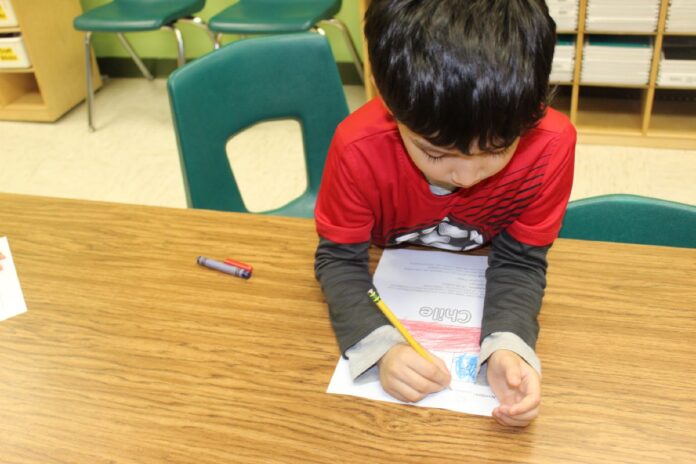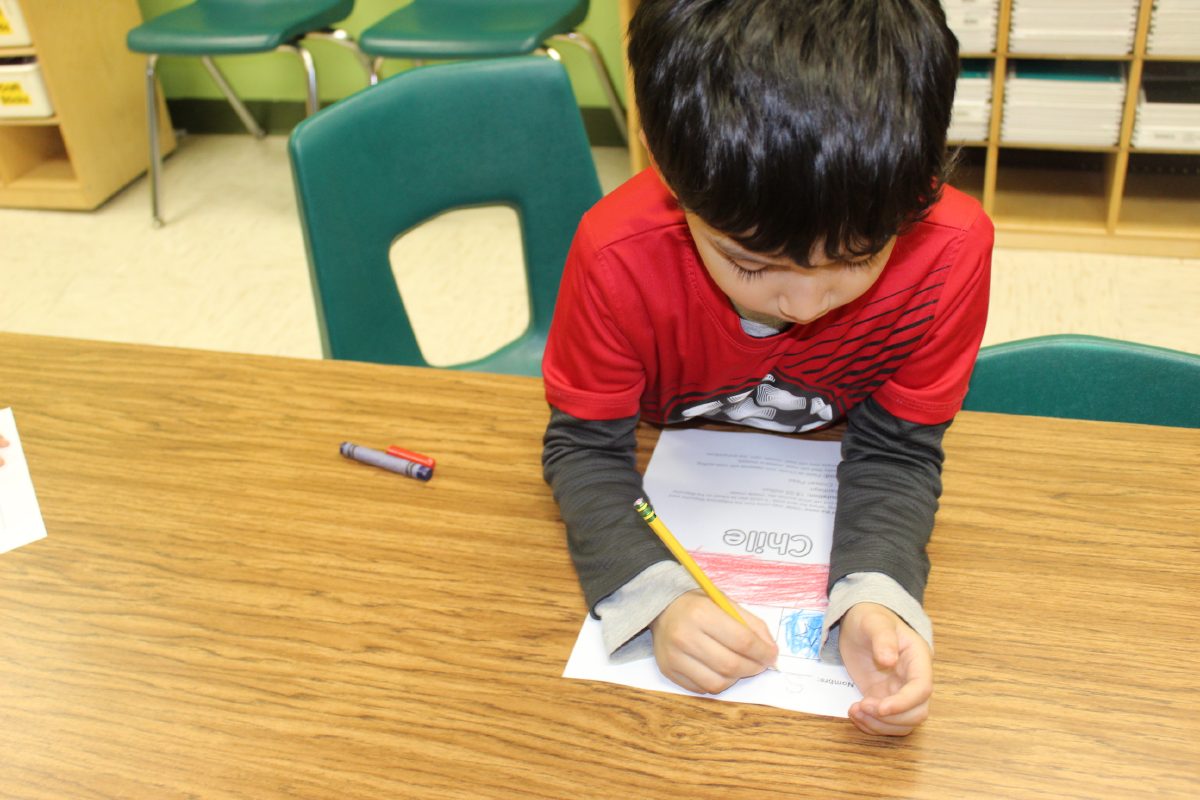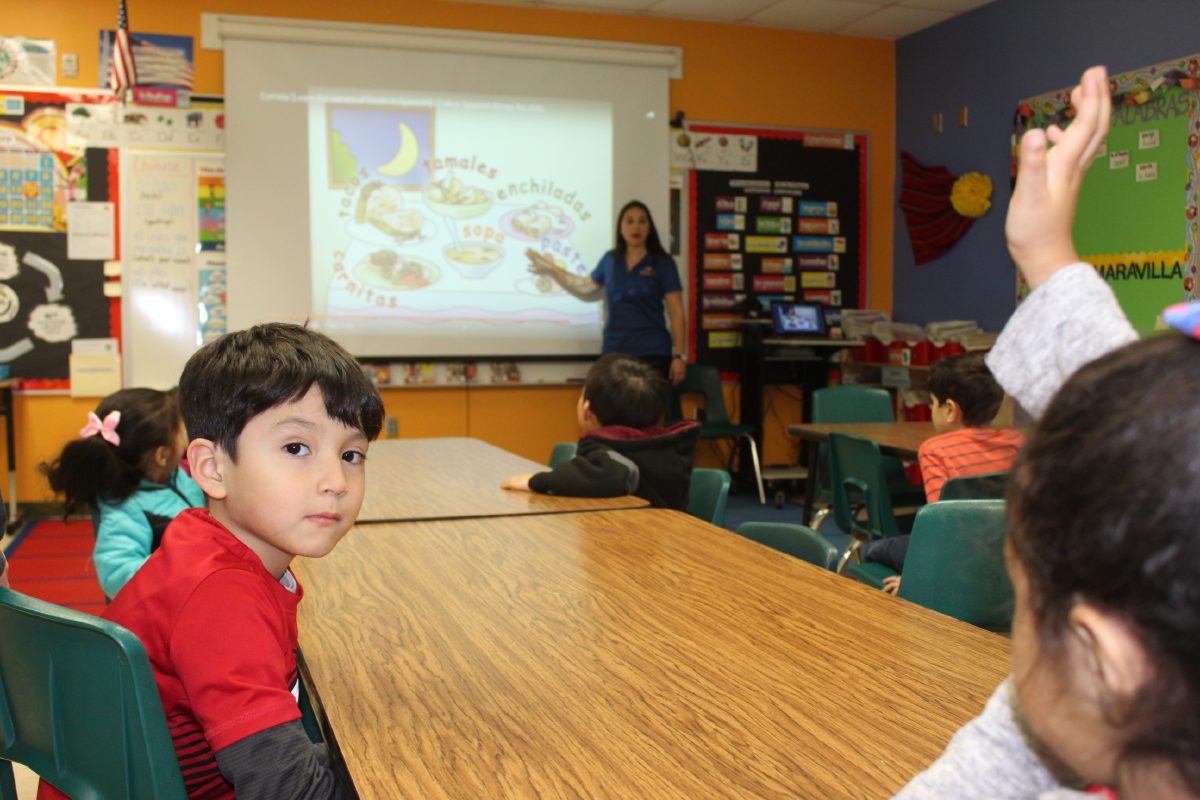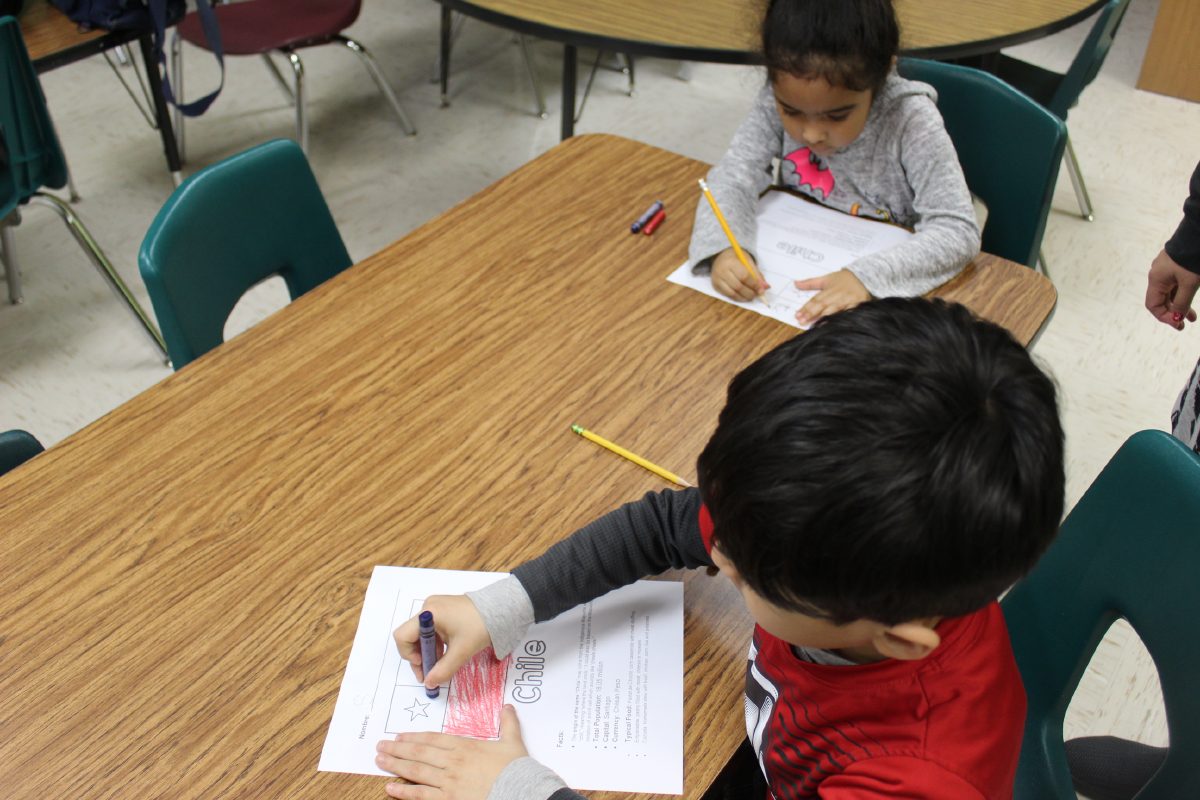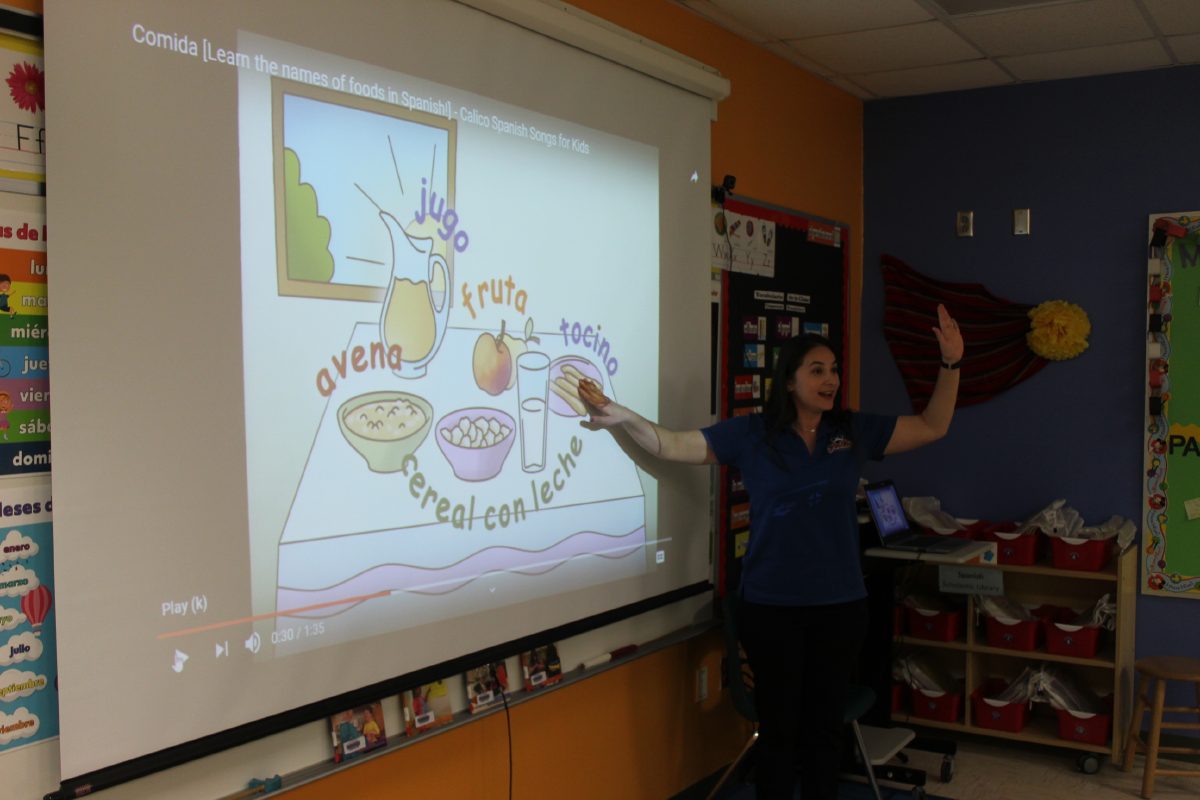HARLINGEN — “You like frijoles?”
Elvia Gonzalez took her young Spanish students through yet another cultural experience as part of the International Baccalaureate program at Austin Elementary School.
“What’s frijoles?” she asked. “Beans? You like beans?”
Austin and Sam Houston elementary schools in the Harlingen school district are in their second year of IB candidacy, and soon they’ll enter the final authorization phase.
The IB Primary Years Program for children ages 3 to 12 nurtures and develops young students as caring, active participants in a life-long journey of learning.
“It’s a very global program,” Myliss Parker, director of advanced academic services for the school district, said when the program first began.
“It has a world view, not just community or United States or Texas view,” she said. “All the curriculum is global minded.”
Two years later, teachers and administrators say they’ve seen a big change as students develop a more global perspective.
Austin Elementary Counselor Debra Ingram calls it “phenomenal.”
“I feel it’s just an amazing difference when you see the students’ self-esteem skyrocket,” Ingram said. “We can see such a transformation in the way they are recognized. When you walk down the halls you can see their work being shared with everyone. They are super excited to share all of that with anyone. I really love those opportunities to see them shine.”
Back in Gonzalez’s class, a voice called out items for “Que hay de almozar?” — along with images on a screen.
Then Gonzalez stepped in to reinforce what they’d learned.
“Almozar is lunch,” she said to the inquisitive children. “Ensalada, tostado, refresco.”
And then “Que hay de cenar?” — dinner.
“Tacos, tamales, enchiladas, sopa carnitas,” she said, naming off popular Mexican dishes.
She asked the children to name some of their favorite dishes.
“Do you like burgers? Pizza?” she asked. “Pizza stays the same. There’s no word in Spanish for pizza.”
The day’s theme was “Como nos expresamos” – How we express ourselves.
“They learn vocabulary and how to use that vocabulary,” she said. “They have conversations in class. They have to use their vocabulary in practice in other classrooms. They get one more language so they can be open-minded learners.”
Gonzalez said she has also begun teaching second graders Mandarin Chinese.
“They actually have a teacher from China, she’s live with them, teaching them pronunciation, vocabulary and culture as well,” she said. “Here in this class it’s Spanish every day.”
The program, Ingram said, has six trans-disciplinary themes: who we are, where we are in place and time, how we express ourselves, how the world works, how we organize ourselves and sharing the planet.
These themes provide IB world schools with the opportunity to incorporate local and global issues in the curriculum, she said.
“The International Baccalaureate Program primary years program strives to develop internationally minded people who recognize their common humanity and shared guardianship of the planet,” she said. “The students are encouraged to develop independence and take responsibility for their own learning. They know the value of teamwork and they also are independent thinkers.”

